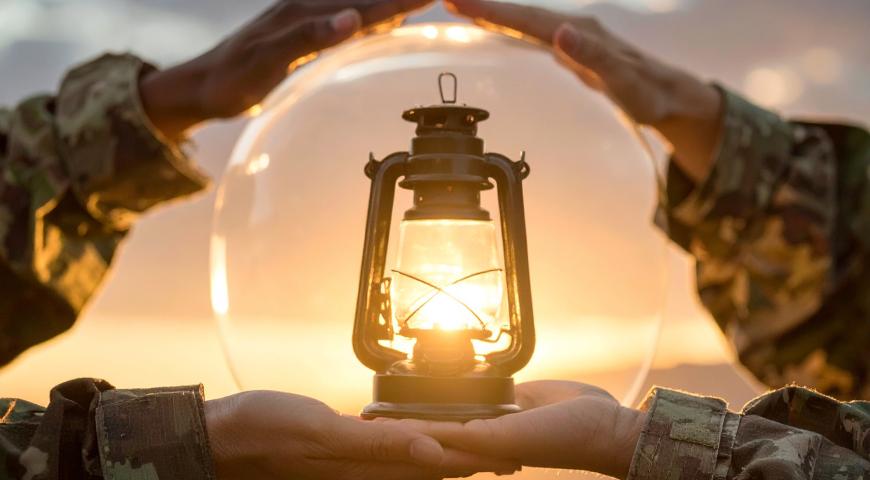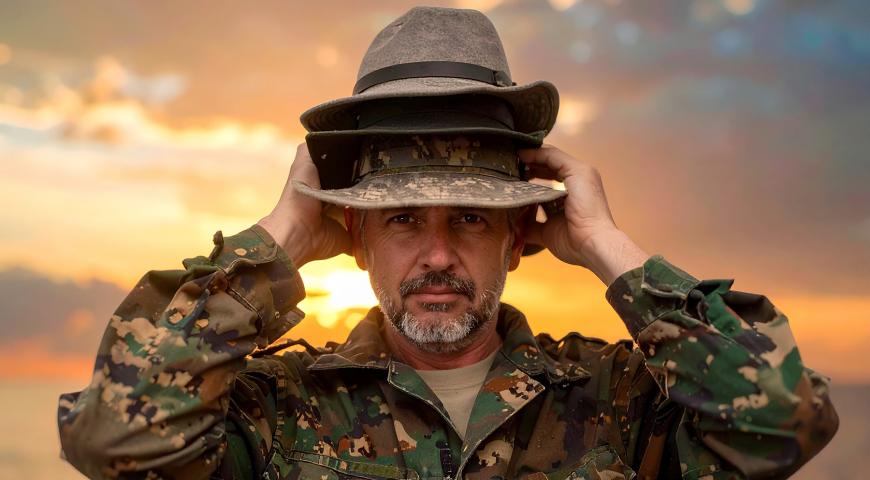“There is no intelligence where there is no change and no need of change” H.G. Wells (Time Machine)
The ADF Mission is: ‘To apply military power in order to defend Australia and its national interests.’ The threats we are facing are many, including: a cultural conflict with Islamic extremists; cyber warfare; and the geo-strategic conflict between our key ally (the US) and our key trading partner (China). The Australian Defence Organisation (ADO) is engaged across a range of challenges, but, although the ADF has a robust Joint Professional Military Education (JPME) program that aspires to achieve the ‘Intellectual Edge’, the manner in which the ADF engages with its challenges has become risk averse to the point where the ADF is at increased risk of failing in its mission. In particular, the ADF appears to be fostering a culture that favours loss-aversion over outcomes-focused actions and that needs to change because this loss-averse culture undermines the benefits gained from JPME and the ‘Intellectual Edge’.
MAJGEN Ryan’s An Australian Intellectual Edge for Conflict and Competition in the 21st Century established a clear case for the ADF to be able to respond to change; informed and enabled by our Intellectual Edge. Indeed, Australians expect the Australian Defence Organisation (ADO) will have the edge in all respects. They expect us to win at whatever we are doing.
But, our potential adversaries are in the same situation, and we have to assume that they are competent and resilient adversaries. If we think that we are going to “out-educate” our adversaries to give us the “edge” in an “intellectual” sense, we are kidding ourselves.
Organisational ‘Intellectual Edge’
Education is only part of the solution. We also need “reform of the ADO to ensure the organisation effectively harnesses the intellectual capacity of its people”; thus empowering our personnel to act decisively when the need arises. Indeed, of particular concern is that in the ADO the “journey is complicated in peace time by what Williamson Murray describes as the ‘privileging’ of certainty and low-risk behaviour, instead of preparing themselves widely and deeply for the uncertain, high-risk endeavour that is war’”. Garnett’s Do we have Permission for an Intellectual Edge? took this point a step further: “Permission for innovative thinking within an organisation requires the leader to be accountable for errors that may eventuate along the way. Many leaders within our organisation (the ADF) have become severely risk averse and therefore they withhold permission for their subordinates to try anything new.” Education cannot, of itself, overcome the ADF’s loss-averse culture.
The trend towards a risk averse culture has been going on for so long that we are now in a position where risk aversion and a focus on ‘loss’ (an undesirable situation) instead of ‘outcome’ (achievement of the mission) are entrenched at all levels of the ADF; thus systematically undermining our preparation for Colton’s “uncertainty and the high risk endeavour of war.” I offer the view that there is ample evidence in the ADO of loss-averse culture and ‘certainty-driven’ behaviour; particularly by our leadership, as follows:
- Although the media is the ‘fourth estate’ and essential to democracy, our government has become increasingly intolerant of ‘bad press’. In this context, senior ADF leadership is beholden to feeding government’s appetite for reporting and ensuring governance is strictly managed; thereby lowering the ‘reputation risk’ the ADO has with government. This leads to micro-management in decision-making and reporting. An example of this behaviour is the frequency and rapidity with which our various headquarters are expected to report to Ministers about anything that has a slight chance of being in the media. This includes the preparation of ministerial advice on minor personnel matters that has a slight risk of media attention.
- With decision-making being intentionally reserved for higher levels (than was the case ten-twenty years ago), we have seen steadily increasing numbers of Senior Officers relative to junior numbers. For example, from 2007 to 2017, the number of star ranks in the ADF rose from 149 to 189, yet the ADF’s strength only increased from 51504 to 58680. Ie, the ratio changed from 1:345 to 1:310 (interestingly, compared to Canada’s (a like-size force) ratio of approximately 1:530 and the US Army’s approximately 1:1300, we are top heavy). This tendency for reducing the ratio of senior to junior members has also been reflected across other senior officer and enlisted ranks.
- One of the consequences of this top-heavy force structure is the elevation of decision-making and judgement to the point where most of our Unit-level personnel are good at identifying and reporting on governance requirements, but they no longer have the autonomy (or in Garnett’s words, ‘permission’) they need to implement innovation or take decisive action.
- Of particular concern, the ADF’s implementation of the Work Health and Safety (WHS) Act is a key point of failure because it is a loss-focused risk management process that breeds risk-averse followers, who fear the safety Regulator’s wrath, instead of independent outcomes-based thinkers.
- A clear example of this is how we have been managing Aviation Safety in the past few years. In our drive to follow the civilian aviation safety model (an ultra-safe system) and to comply with the WHS Act, our Airworthiness Regulator switched our aviation safety and airworthiness regulations to the risk averse, non-outcome focused Defence Aviation Safety Regulations (DASRs). Under these regulations, airworthiness oversight has become laborious and engineer-centric (loss-focused) vice mission-centric (outcomes-focused). Consequently aircrew are much more restricted in what decisions they can make regarding aviation safety risks. Of note, Navy and Army are following the Air Force lead by implementing WHS Act-based ‘Land worthiness’ and ‘Sea worthiness’.
- We are not the only military grappling with negative outcomes from their risk management safety culture. The US Army concluded: “The five-step (seven in the ADF case) risk management process is primarily a loss-only model where opportunity is not fully addressed”.
What is the ADF leadership doing about Organisational ‘Intellectual Edge’?
If we in the ADF know that we need the ‘Intellectual Edge’ in an organisational sense, and if we know that our leadership has engendered a peace-time, loss-averse culture, then we must ask ourselves: How did we get to this point and what are we going to do about it?
Although our senior leaders are often heard espousing the need for “mission command”; “courage to make the tough decisions”; “making time for innovation”; “reducing risk aversion”; they aren’t demonstrating those behaviours. Our very senior star ranks are aware of the risk averse and governance-heavy nature of our organisation, and there have been attempts to remedy this behaviour. For example the First Principles Review sought to establish:
- “An organisational structure that empowers managers and enables fast, efficient communication, decision making and execution”; and
- “Fewer layers and increased spans of control to drive faster decision making, clearer accountability and empower managers”.
Think we’ve achieved these? …Far from it.
As H.G. Wells said, there is no intelligence where there is no change. Organisationally we have the opposite of the Intellectual Edge: Our organisational culture dissuades independent thinking and the outcomes-focused culture required for successful Mission Command. The random spark of innovation that we do achieve comes instead from those amazing individuals that persevere and take career risks, despite the organisational roadblocks.
Fundamental change
The next logical question is: What is it about the ADO that needs reforming to ensure we harness the Intellectual Edge of our personnel (as envisioned by Garnett, Colton and Ryan)? I suggest that we need some fundamental shifts in how we engage government and how we implement policies that disempower our people, such as:
- We need a more arms-length relationship with our politicians (and their bureaucrats). An arms-length relationship would be akin to having politicians give our very Senior Officers the permission they need to be innovative and outcomes-focused in running the ADF without having to guard against every instance of ‘bad press’. I don’t hold out much hope of changing this paradigm because it would probably require successive CDFs to take reputation risk to drastically alter the relationship (potentially by resignation).
- We must give primacy to Part 1, Div 4, section 12D(1) of the WHS Act which states “Nothing in this Act requires or permits a person to take any action, or to refrain from taking any action, that would be, or could reasonably be expected to be, prejudicial to Australia’s defence”. The lack of an outcomes-focused safety system leads to risk aversion and dependent thinking. This is a fundamental failure in achievement of the Intellectual Edge. We should consider a revised standard of accountability for Defence within the WHS Act, or better yet, develop an outcomes-focused safety system.
- Finally, the Unit is the centre of all that we do in the ADF, and Units are the best chance we have of establishing an outcomes-focused culture. We need to empower Unit Commanders by giving them permission to utilise an outcomes-focused approach in implementing full accountability for all governance and risk management (for example finance, safety, legal decisions, medical interaction, discipline (through to termination), training, etc). This would foster a cultural shift back to the point where Mission Command is enabled, understood and emulated in dealing with future challenges.
Conclusion
The ADF cannot achieve an organisational ‘Intellectual Edge’ with its extant loss-averse culture. ADF personnel SHOULD be taking risks to foster innovation, achieve our mission and to prepare for future challenges. Fundamental change is required across our leadership and key governance settings so that ADF personnel are then able to experience how hard they can push themselves and their equipment, and importantly, how to negotiate challenges with an outcomes-focused mindset. If we are successful in this endeavour, we would harness the advantage we have in our JPME, thereby sowing the seeds for success in the high-risk endeavours that the ADF will face in the future. After all, if the ADF isn’t operating on the edge during wartime, who is? (Our enemies, that’s who)
AIRCDRE Bill Kourelakos recently retired from the RAAF after 32 years of military service in both the Canadian Forces and the Royal Australian Air Force. His career consisted of four tours as a C-130 Navigator; several Air Force and Joint staff appointments; and he held Commands / Deputy Commands in 36+37SQNs, TG633.4, 86WG, AMTDU, NORCOM, HQAC and AMG.
Social Mastery
Please let us know if you have discovered an issue with the content on this page.
Comments
Start the conversation by sharing your thoughts! Please login to comment. If you don't yet have an account registration is quick and easy.




